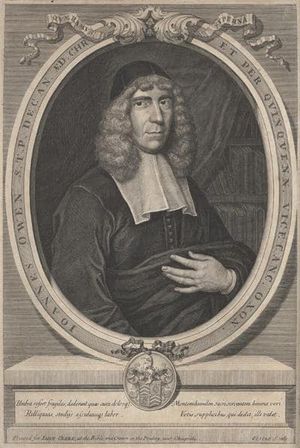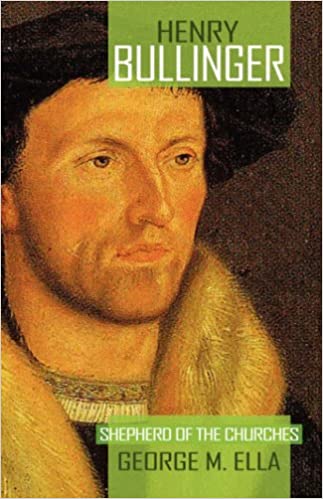Whatever you may think about the ministry of John Piper, there can be no doubt that his publications have substantially raised the profile of Jonathan Edwards.
With all his remarkable appeal to the experience-soaked world of contemporary Evangelicalism, Piper has made it almost fashionable for Evangelicals to know something about the life and opinions of America’s greatest philosopher and theologian.
His debt to Edwards is frequently reiterated. One of Piper’s titles, God’s passion for His glory: Living the vision of Jonathan Edwards (1998), includes a full reprint of Edwards’ formidable text, The end for which God created the world.
Edwards’ concern for a life fully given over to the pursuit of what most glorifies God has been given amazing impetus through Piper’s influential exposition of his central ideas.
Rescued from obscurity
Piper’s interest in Edwards is part of a wider trend. Within the academic world, scholars have been rescuing formidable thinkers of seventeenth and eighteenth-century Calvinism from some of the obscurity they have long endured.
Edwards is one of those whose reputations have been rescued. Since 1957, Yale University Press have been issuing The Works of Jonathan Edwards — which have so far reached 22 volumes.
Iain Murray feels that the order in which Yale UP has republished the works reflects their lack of interest in ‘the importance of Edwards’ message’ (Jonathan Edwards: A new biography, Banner of Truth, 1987, p.467).
Despite that, Edwards’ reputation has blossomed as a series of recent publications have identified him as a richer and more complex individual than the caricature popularised by the critics of New England Calvinism.
The cumulative effect of these recent publications has been, George Marsden argues, a ‘revolution in Edwards studies’ (p. xvii).
Complex times
Marsden’s new biography of Edwards is part of this scholarly revival. Marsden is one of the most eminent of contemporary historians, and is an Evangelical to boot. His biography will certainly be recognised as the definitive biography of his subject.
His writing is sympathetic but not uncritical — he records Edwards’ life-long struggle against pride and his reluctance to engage in pastoral visitation. ‘My attitude to Edwards’ theology is more sympathetic than not’, he remarks (p. 6).
His biography is of a different kind to that by Iain Murray, which many ET readers will already own. It is more detailed, and less explicitly applicatory. While Marsden’s treatment and approach may be different, however, I would not want to be without it.
Marsden’s Edwards is a complex man living in complex times. Edwards was writing as the church made its transition from the world of Puritanism to the rationalism of the Enlightenment.
He was, moreover, a British citizen living on the dangerous borders of the emerging British Empire, where English and French forces competed to control the native Americans. Human life was cheap — threatened by Indian wars, slave insurrections and smallpox epidemics.
It was the world of James Fenimore Cooper’s Last of the Mohicans — and, as Marsden points out, Edwards would likely have known many of the native Americans involved in the novel’s plot through his ministry in Stockbridge.
Social and theological change
Edwards was an aristocrat whose extended family were known as much for their incivility as their elite connections.
As Marsden comments: ‘Edwards is sometimes criticized for having too dim a view of human nature, but it may be helpful to be reminded that his grandmother was an incorrigible profligate, his great-aunt committed infanticide, and his great-uncle was an axe-murderer’ (p.22).
Yet Edwards’ elite connections came to mean less and less as the eighteenth century wore on. Towards the end of his time in Northampton, Edwards was one of the highest paid pastors in the area. But social change was going hand-in-hand with theological change.
The old consensus was evaporating as the newly fashionable Arminianism — and the scepticism to which it often seemed to lead — began to dominate the New England mind. Edwards was old-fashioned, even by eighteenth-century standards.
Turning point of history
Marsden’s biography does a wonderful job of vividly recreating the imaginative world of an eighteenth-century intellectual living in a frontier town. He describes the painful steps by which Edwards came to faith.
Interestingly, he notes that Edwards’ diary worries about his inability to trace in his own experience the ‘steps to faith’ that the English Puritans had popularised a century before.
He notes Edwards’ sustained interest in millennialism, and his conviction that the Protestant-Catholic conflict being waged between British and French forces in North America was a symptom of the wider struggle to establish the kingdom of God on earth.
He also notes Edwards’ interest in locating himself and his people at the turning point of history — as living in the days just before God would effect some apocalyptic intervention.
Revival
Many readers of ET will be most interested in Marsden’s description of Edwards’ involvement in revival. It is certainly interesting that Edwards’ first experience of revival took place in the context of a dispute about Arminianism.
Edwards believed the awakening had been ‘sparked’ by the public affirmation of Calvinism that this dispute required. But Marsden describes the events as being as much a tragedy as a triumph.
Edwards’ report of these events, A faithful narrative, was quickly published, establishing its author as an international expert on the theme. But Edwards’ account publicised the Northampton awakening just as the community slipped back into their pre-revival lifestyles.
Edwards’ account was effectively drawing attention to the apparent failure of the revival. A faithful narrative had, it seemed, claimed too much.
An angry God
Many will be fascinated by Marsden’s discussion of Edwards’ famous sermon, Sinners in the hands of an angry God. Edwards had, it appears, preached the sermon a number of times before he arrived in Enfield, where it had its most spectacular impact.
If contemporary descriptions are anything to go by, he was anything but a dynamic speaker. But he was emphatic and, as he led the congregation inexorably towards his conclusion, their response prevented him finishing.
As the preacher’s intensity gripped the congregation, wails and shrieks for mercy grew louder until the sermon had to be abandoned. Many Reformed believers celebrate the occasion. But don’t we also often argue that a true work of the Spirit will never eclipse the exposition of Scripture?
The Great Awakening
Marsden’s discussion of Edwards relationship with Whitefield is similarly fascinating. He describes Whitefield as America’s first ‘star’ (p.205), a ministerial entrepreneur who applied the principles of commerce to advance religious ends.
But Whitefield was the antithesis of Edwards, says Marsden, ‘He was, as Edwards was not, an eighteenth-century revolutionary’ (p.210). The two men never really hit it off — Edwards hinted that Whitefield held him at a distance because he could not countenance Whitefield’s adherence to ‘impulses’ in the search for divine guidance.
In many ways it is ironic that we so often associate Edwards with revival.
As Marsden’s biography emphasises, the Great Awakening fostered trends that eventually worked to undermine the old puritan world that Edwards was trying to maintain.
Many of its adherents promoted the individualism and lay preaching that Edwards so deplored. Yet Edwards used the revival meetings to effect important changes in the worship of his churches — revival meetings used hymns, for example, while only psalms were allowed in official church meetings.
Tragedy?
The overall flavour of Marsden’s biography is, perhaps, the tragedy of Edwards’ life. He was ‘a perfectionist who had insufficient ways of coping with imperfections in others’ (p.370).
He built his long-term hopes for the prosperity of the church on the shifting sands of revival rather than the steady development of congregation-based programmes.
His congregational and social difficulties were often caused by a basic theological ambiguity that demonstrated his commitment both to the idea of a Christian nation and to that of a church of ‘visible saints’.
And, above all else, there is the tragedy of his early death.
The presence of God
But, in one respect at least, Edwards’ fears were not realised — the New England churches did not lose their power. By the 1830s, the combined mission, evangelism and reform budgets of the Congregation-alists and Presbyterians in New England actually exceeded the budget of the federal government (p.8).
As they moved into the nineteenth century, however, their commitments to his system of orthodoxy certainly waned. Socially-acceptable success had come at great cost.
Marsden’s biography offers its readers over six hundred pages of detail in its description of Edwards’ life. Its evangelical sympathies, short chapters, lucid prose, hardback production and excellent price make it a book that should be widely read in the churches.
It would be difficult to read these pages and not come away sharing Edwards’ goal to live daily with a sense of the presence of God, and resolving as Edwards did to ‘serve God first with his best gifts’ (p.134).
On the importance of that point, Edwards and his twenty-first century admirers must surely agree.
Jonathan Edwards: A Life
is published by Yale University Press, New Haven, 2003, at £25. ISBN 9-780300-096934, hardback.















